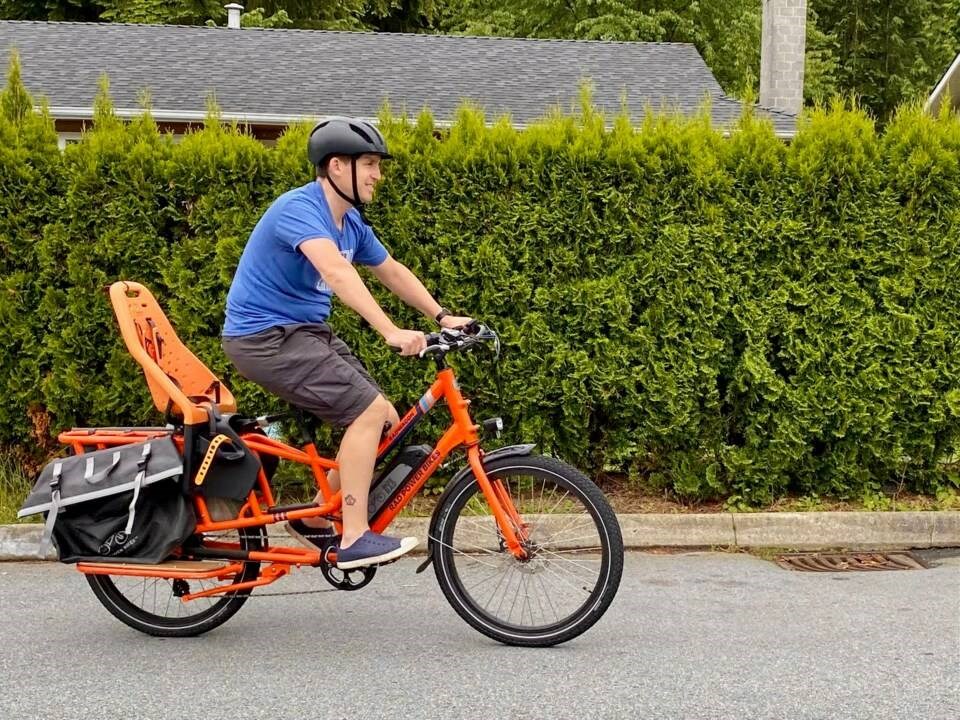Need to get groceries or drop the kids off at school, but your significant other has the car?
This is a situation that may cause many young families to ask themselves if they need to buy another vehicle.
A newly proposed initiative in the District of North Vancouver could offer another option.
At a regular council meeting last week (April 3), Coun. Jordan Back proposed a two-year pilot program that would allow residents to borrow electric cargo or utility bikes from the public library system.
Council voted unanimously in favour of staff reporting back on the program, which could start as early as this summer. An amendment was added for the motion to be forwarded to the library board.
If ultimately approved, card holders could take out one of a few e-bikes from the North Vancouver District Public Library's Lynn Valley branch for up to one week at a time.
Electric cargo and utility bikes offer benefits including convenience, environmental sustainability and safety, but at $2,000-$10,000 they can be costly, according to Back’s report.
His report points to a growing number of bike libraries in the U.S., including one in Madison, Wis.
Borrowing a cargo e-bike would allow residents to see how it could fit into their lifestyle, Back said.
“They are very much a second-car replacer,” he said. “I’ve found in my own use of an electric cargo bike that it has replaced over 50 per cent of trips that I would have taken a vehicle for.”
Back added that repairs could potentially be covered by a bike co-op partnership with the library, but that all the details hadn’t been ironed out yet.
Coun. Catherine Pope threw her wholehearted support behind the pilot.
“Creating awareness through a program like this is really important to our community in the future – for moving people toward more active transportation and making people aware of the options available to them to replace the car,” she said.
Couns. Jim Hanson and Herman Mah also expressed support, but raised the issue of how liability would be handled.
Coun. Lisa Muri said she wasn’t comfortable with making a decision on behalf of the library board, which would ultimately be responsible for the program.
Back replied that the non-traditional program is bigger than just the library, while being aligned with many of the district’s objectives.
“We’re going to learn a lot about how people are using these bikes … that could lead to future policy decisions,” he said.
Mayor Mike Little said he was fully willing to try the pilot, given that liability was sorted out and the program wouldn’t conflict with the district’s agreement with e-bike provider Lime.
Another program to offer e-bike incentives to low-income residents, also introduced by Back, passed last year.



